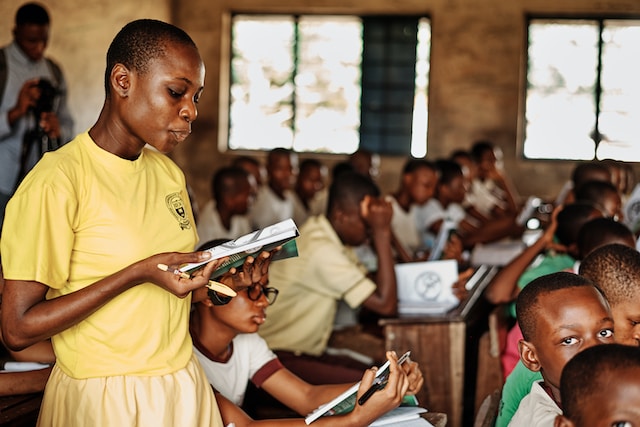In an inspiring blend of resourcefulness and environmental consciousness, Nigerian parents have found an innovative solution to tackle the burden of school bills. By harnessing the power of recyclable waste, they have not only lightened their financial load but also made a remarkable contribution to sustainable education and environmental conservation. This article delves into the inspiring stories and practical initiatives undertaken by Nigerian parents who have embraced this ingenious method of financing education.
- The Rising Cost of Education:
Education expenses have been on the rise globally, and Nigeria is no exception. Many parents struggle to meet the growing demands of tuition fees, textbooks, uniforms, and extracurricular activities. This financial strain often limits educational opportunities for children, hindering their prospects for a better future. However, Nigerian parents have found a unique way to tackle this challenge by utilizing recyclable waste.
- Embracing Recycling as a Solution:
Nigeria, like many other countries, grapples with significant waste management issues. However, instead of perceiving waste as a problem, parents have turned it into an opportunity. By collecting and segregating recyclable materials, they can exchange these items for money or essential school supplies. This innovative approach not only addresses the financial aspect but also instills a sense of environmental responsibility in both parents and children.
- Community-Based Initiatives:
Across Nigeria, various community-based initiatives have emerged to support parents in their pursuit of sustainable education. These programs provide collection centers where parents can drop off their recyclable waste, which is then sorted, processed, and sold. The revenue generated is used to cover educational expenses or create scholarship funds for underprivileged students. These initiatives foster a sense of solidarity within the community while promoting environmental conservation.
- Impact on Education and the Environment:
The impact of this approach extends beyond immediate financial relief. By involving children in the collection and recycling process, parents are imparting invaluable lessons on environmental conservation and sustainability. Children gain firsthand knowledge about waste management, recycling, and the importance of preserving the environment. This hands-on experience fosters a generation of environmentally conscious individuals who understand the value of their actions.
- Promoting Sustainable Development:
The practice of using recyclable waste to pay school bills aligns with the United Nations’ Sustainable Development Goals (SDGs). It addresses SDG 4, which focuses on ensuring inclusive and equitable quality education for all. Moreover, it contributes to SDG 12, which aims to promote responsible consumption and production patterns, and SDG 13, which seeks to combat climate change and its impacts.
Conclusion:
Nigerian parents have demonstrated their resilience and ingenuity by turning recyclable waste into an invaluable resource for funding their children’s education. Through community-based initiatives, they have not only lightened their financial burden but also fostered sustainable education and environmental conservation. This inspiring approach serves as a model for other communities around the world, showcasing the potential of creative solutions to address multifaceted challenges. As more parents and communities embrace this innovative practice, we can collectively create a brighter future for both our children and the planet.












